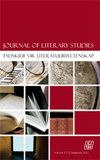Mapping Abjection: Dissecting Racial and Sexual Boundaries in Mark Gevisser’s Lost and Found in Johannesburg
IF 0.1
4区 文学
0 LITERARY THEORY & CRITICISM
引用次数: 0
Abstract
This article details the deconstruction of social identity in Mark Gevisser’s memoir Lost and Found in Johannesburg. It does so by emphasising how the city’s design reflects racial and sexual segregation through the construction of borders and boundaries that are nonetheless nebulous and artificial. In Gevisser’s memoir, his recollections are interspersed with the narratives of other marginalised individuals and groups. I employ Julia Kristeva’s theory of abjection to understand how systems of exclusion function not only to exclude, but paradoxically, how they allow spaces of inclusion. I argue that the apartheid city can be read as a social body that can be analysed in a similar manner to how the individual subject distinguishes itself from others. The social body therefore creates subjective boundaries between racialised and sexualised others to maintain its sense of autonomy.测绘落魄:在马克·格维瑟的《约翰内斯堡失物招领》中剖析种族和性别的界限
本文详细介绍了马克·格维瑟的回忆录《约翰内斯堡失物招领》中对社会身份的解构。它通过强调城市的设计如何通过模糊和人为的边界和边界的建设反映种族和性别隔离来做到这一点。在Gevisser的回忆录中,他的回忆穿插着其他被边缘化的个人和群体的叙述。我用茱莉亚·克里斯特娃的落差理论来理解排他系统如何不仅排斥,而且矛盾的是,它们如何允许包容的空间。我认为,种族隔离城市可以被解读为一个社会团体,可以用与个体主体如何区分自己与他人类似的方式来分析。因此,社会主体在种族化和性别化的他人之间创造了主观界限,以保持其自主性。
本文章由计算机程序翻译,如有差异,请以英文原文为准。
求助全文
约1分钟内获得全文
求助全文
来源期刊

Journal of Literary Studies
Multiple-
CiteScore
0.50
自引率
0.00%
发文量
0
期刊介绍:
The Journal of Literary Studies publishes and globally disseminates original and cutting-edge research informed by Literary and Cultural Theory. The Journal is an independent quarterly publication owned and published by the South African Literary Society in partnership with Unisa Press and Taylor & Francis. It is housed and produced in the division Theory of Literature at the University of South Africa and is accredited and subsidised by the South African Department of Higher Education and Training. The aim of the journal is to publish articles and full-length review essays informed by Literary Theory in the General Literary Theory subject area and mostly covering Formalism, New Criticism, Semiotics, Structuralism, Marxism, Poststructuralism, Psychoanalysis, Gender studies, New Historicism, Ecocriticism, Animal Studies, Reception Theory, Comparative Literature, Narrative Theory, Drama Theory, Poetry Theory, and Biography and Autobiography.
 求助内容:
求助内容: 应助结果提醒方式:
应助结果提醒方式:


